Kazan Digital Week: Aksakov about cryptocurrencies, Mishustin about refusal from foreign IT solutions
Financial assets, IT specialists’ relocation and new professions of the digital era were discussed at Kazan Digital Week
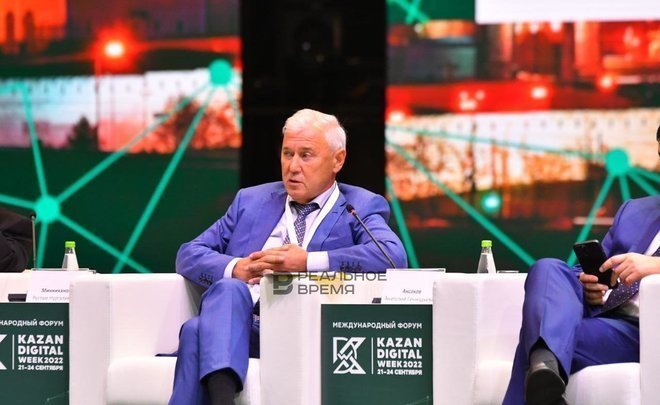
“No external interferences of foreign structures won’t be able to impede the flow of Russian money because it will go through digital channels, not banks’ correspondent accounts,” Chairman of the State Duma’s Committee for Financial Market Anatoly Aksakov outlined alternative ways of money transfer abroad. At Kazan Digital Week international forum in Kazan, he clarified how they wanted to legalise cryptocurrency in Russia. Read in Realnoe Vremya’s brief report on if many IT geeks relocated in Georgia and what new professions appear in the digital economy.
By 2025, Russia will refuse Western digital solutions
Before the start of the discussion, Russian Prime Minister Mikhail Mishustin delivered a welcome speech via teleconference. In the speech, he told the community it was necessary to provide the self-sufficiency of Russian digital solutions in all spheres of the economy because by 2025 foreign software and equipment will have to be taken out of use and replaced with Russian equipment.
“The president set such a task to provide the security of information infrastructure,” noted the head of the Russian government.
To achieve this goal, the federal government create two packages of support measures that including tax concessions and grants. According to Mikhail Mishustin, in the last two years, the number of software and equipment solutions by 75%, to 2 trillion rubles. To stimulate the demand for Russian developments, last year, the access to getting a public order for IT contracts was simplified, the number of grants increased. And to increase the number of specialists, the country’s universities doubled the amount of state-funded places — to 120,000 people. Digital departments opened, additional retraining programmes opened too.
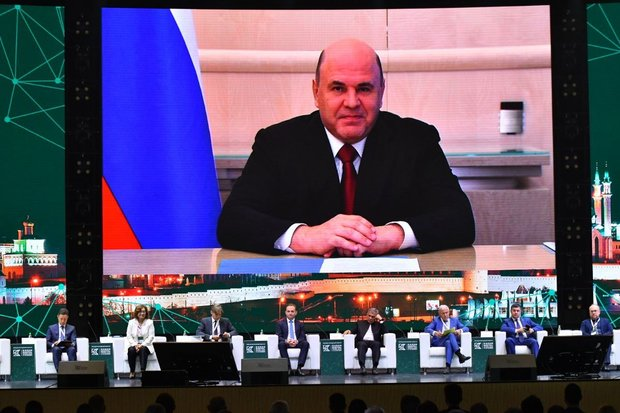
Aksakov at Kazan Digital Week
“Everything that has recently happened in politics stimulates an active use of digital financial assets,” Anatoly Aksakov’s speech boiled down to this. He became one of the key speakers of Kazan Digital Week.
Of course, the opening of the international digital technology forum was notably overshadowed amid the presidential address about the citizens’ partial mobilisation. However, the audience listened to the speech of the lawmaker of banking regulation in the country with great interest, he gave them to understand that digitalisation will have a more noticeable spot in finance that one could image just six months earlier.
Also, Aksakov told them about measures taken to protect citizens’ money on bank accounts from fraud. According to him, a special bill will be adopted this year that will permit banks to block a money transfer to a dropper’s account.
“We hope this year the bill will be adopted and many problems with money withdrawal will be solved, many people who are considered droppers have nothing to do with the money withdrawn will refuse their mission. This will allow protecting citizens’ money,” noted the chairman of the State Duma’s Committee for Financial Market.
Digital money will bypass banks
Aksakov talked about future tokenisation too. A new type of instruments such as digital financial assets appeared this summer that can become an alternative to traditional financial instruments.
“We have actively worked on the bill on digital financial assets in recent years. This area will become key in the development of our financial relationships with other countries,” the speaker warned.
According to him, three companies have already issues digital financial assets, tens of companies are getting ready. “By the way, it is a challenge for the banking system because financial assets move in digital assets, and here banks are not needed. Digital financial assets will replace the turnover existing between banks today,” the speaker noted.
Nowadays talks are held with China and other countries.
“And no external interferences of foreign structures will be able to impede the flow of money because they move through digital channels, not banks’ correspondent accounts. We hope that many anti-Russian decisions won’t be able to become a reality,” indicated the chairman of the State Duma’s Committee for Financial Market.
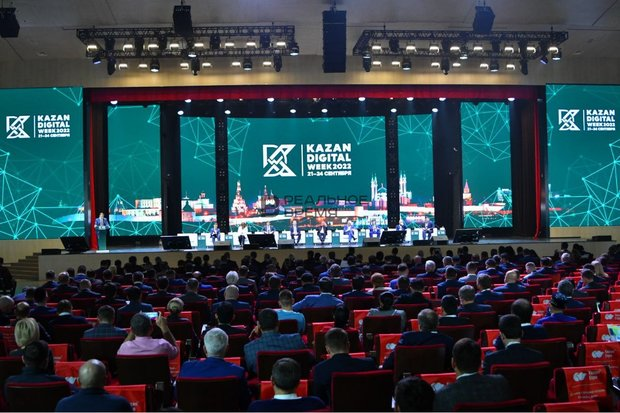
Very heated debates are held on the legalisation of cryptocurrency. The Central Bank has been very hostile until now.
“But the process of discussion resulted in spelling out the responsibility of using cryptocurrency as means of payment in Russia. Moreover, I think the use of the means of payment to pay for supplies of goods in Russia can be legalised. Why not? Moreover, cryptocurrencies really exist and perhaps hundreds of thousands of our citizens, if not millions, actively use them,” Aksakov said.
He thinks it is necessary to create a legal environment that would allow protecting from the use of cryptocurrency as means of payment inside the country and “not allow undermining the financial system.” But at the same time it would permit using this instrument that is so actively utilised in the world.
How digitalisation changes workplaces
Director General of the Agency for Skill and Profession Development Robert Urazov offered a kind of guide to new professions that appear in the digital economy. First of all, he asked those who would not like their children to become IT geeks to raise their arms. Only one person turned out to be against choosing the profession of an IT specialist by the child. The conclusion is that everybody will have to become an IT geek because no sector of the economy can do without digital instruments. On the one hand, professions that weren’t digital transform quickly, on the other hand, new ones appear that seemed to be insignificant.
He considers an unmanned vehicle operator one of the most popular in the future. According to him, nowadays about 580,000 people in the USA have a licence to commercially use unmanned vehicles, whereas in Russia, this number is ten times lower.
“The question is if we will take this road. The answer is obvious. We will have about a million people in a catching up model who will manage unmanned vehicles in different sectors,” Urazov predicted.
He named another popular category of workers of the digital economy: “Which profession are we retraining jobless people now? First of all, marketplace managers. It might seem to be an ordinary technical professions, but more managers of this kind are trained, and they will be able to earn good money in the future.
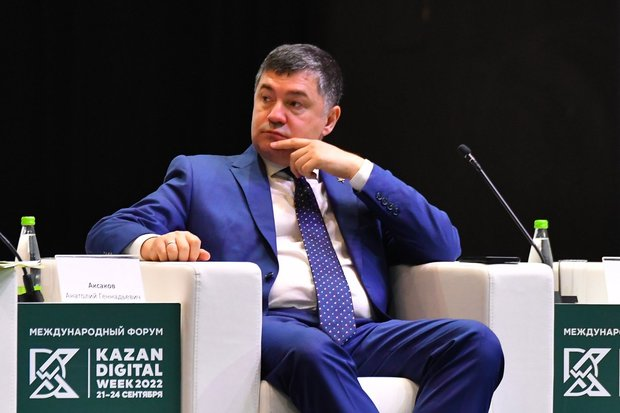
The risk of leakage of important data from a company will become the reverse side of the transition to the digital economy. The speaker thinks that the higher a worker’s professional level, the higher is the likelihood he will be pouched by rivals — together with valuable commercial information.
“This is hardly treated,” Urazov warned and recommended how to avoid negative moments. He thinks that it is necessary to raise the motivation of highly professional IT specialists engaging them into global tasks.
People in one in three companies have been relocated
GR director of Headhunter Vitaly Terentyev told the audience about how the wave of relocation affected the IT industry and how the demand for IT workers changed after that. The federal recruiting company prepared research on this topic deliberately for the forum. Specialists were surveyed in summer, about 300 people participated in it, among whom representatives of large and mid-sized businesses. International sanctions, limited access to technologies and supplies of hardware seriously transformed the plans for hiring specialists to develop IT products and solutions. Vitaly Terentyev said that 33% of companies increased the number of people hired, 26% left it at the previous level, but the absolute majority of employers admitted that the search for suitable specialists got complicated.
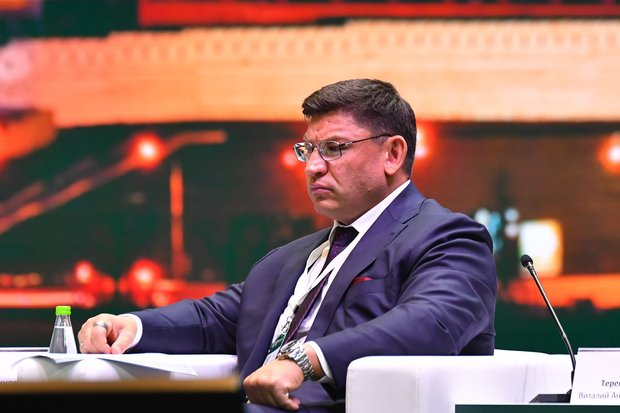
“Despite the crises, there is always a deficit of this staff,” he noted. The focus on hiring analysts, web developers and technical support specialists because companies have to launch new products.
Almost a third of the companies admitted that the wave of relocated affected them in spring. But two-thirds of the companies claimed the opposite. Georgia, the USA, Kazakhstan became the main relocation destinations, while the technical selection of workers moved to other countries. A rise in vacancies was seen in Armenia, Georgia and Kazakhstan during the first half of the year. To keep IT specialists in the country, a third of Russian companies raised salaries by more than 10%. The other third didn’t raise the salaries but didn’t lower the, another 10% of the companies resorted to one-time motivation payouts. “The IT labour market is a fight for talents,” Vitaly Terentyev concluded.